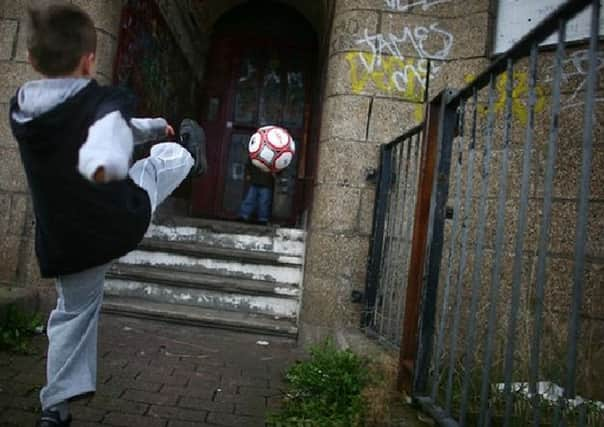Scotland's poorest areas are losers in welfare reform


Research conducted for the Scottish Parliament’s Social Security Committee by Sheffield Hallam University shows that by 2020-21 Scotland can expect to lose just over £1 billion a year as a result of the measures introduced by the UK government.
Sheffield Hallam also estimates that the pre-2015 reforms are already costing claimants in Scotland just over £1.1bn a year. This brings the cumulative loss expected from all the post-2010 welfare reforms up to more than £2bn a year.
Advertisement
Hide AdAdvertisement
Hide AdThe most deprived local authorities in Scotland are the worst affected. Glasgow loses the most, with the research showing that the loss from the post-2015 welfare reforms is expected to average £400 a year per working age adult. West Dunbartonshire loses £390 a year per working age adult, and North Ayrshire £380. The least affected local authorities are the Shetland Islands, Aberdeenshire and Aberdeen, at less than £200 a year.
The four-year freeze in the value of most working age benefits and reductions in the work allowances within Universal Credit (which are taking over from Tax Credits) are expected to lead to the biggest financial losses in Scotland.
The convener of the social security committee SNP MSP Sandra White said: “Our welfare system was meant to be a safety net to help those most in need in our communities. Yet today this research shows that the biggest losers from the latest round of UK government welfare reforms are once again the poorest in our society.
“I hope this research acts as a wake-up call to the UK government that their approach to welfare reform just isn’t working.”
Co-author of the research, Professor Steve Fothergill from Sheffield Hallam University, said: “The new welfare reforms impact significantly on millions of households across the whole of Britain, including in Scotland.
“Increases in personal tax allowances, the introduction of the National Living Wage and new support towards childcare costs will go some way to offsetting the financial losses. But the winners and the losers will not always be the same people and it looks unlikely that the full financial loss will be offset. It is also questionable whether the welfare reforms will result in more people finding work or increasing their hours.”
The research finds that the new, lower Benefit Cap – £20,000 a year per household – is likely to impact on 11,000 households in Scotland. Each will have to come to terms with an average loss of more than £2,000 per year. The pre-2016 cap previously affected only 900 households in Scotland. 700,000 households in Scotland are likely to be affected by the benefit freeze, more than 240,000 by the lower Universal Credit work allowances and 150,000 by reduced entitlement to Tax Credits.